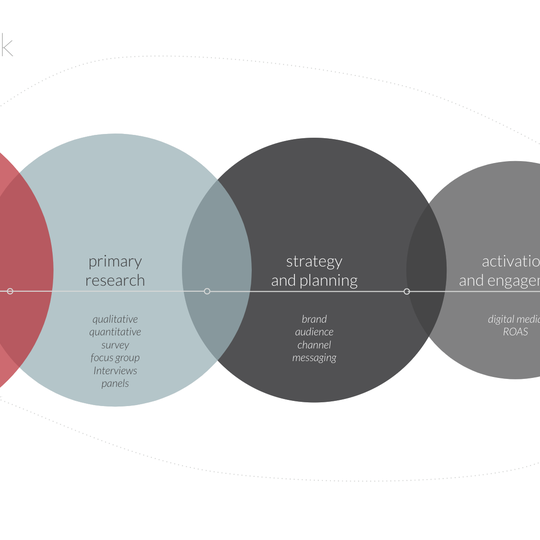Our PROCESS
Uncovering business challenges through repeatable patterns

Branding Research Explained
Why Brands Should Use Branding Research for Their Marketing Strategy:
Improved Understanding of Target Audience:
Through branding research, brands can gain a deeper understanding of their target audience, including their needs, wants, and perceptions of the brand. This information can then be used to tailor marketing efforts and ensure they are resonating with the target audience.
Increased Brand Awareness:
By conducting branding research, brands can identify the strengths and weaknesses of their brand, and develop strategies to improve brand awareness and recognition. This can include identifying new market segments, differentiating the brand from competitors, and improving the brand’s image.
Increased Customer Loyalty:
Branding research can help brands understand why customers choose their products or services over those of their competitors. This information can then be used to improve customer loyalty by creating a more compelling brand promise and delivering on that promise consistently.
Better ROI on Marketing Investments:
By understanding their target audience, brands can make more informed marketing decisions, which can result in a higher return on investment (ROI) on their marketing efforts. This is because marketing efforts will be better targeted and more effective, leading to higher customer engagement and sales.
Competitive Advantage:
Branding research can provide brands with insights into what their competitors are doing and how they are positioning their brands. This information can be used to develop marketing strategies that give the brand a competitive advantage.
In conclusion, branding research is an essential tool for brands looking to achieve their marketing goals. By gaining a deeper understanding of their target audience, improving brand awareness, increasing customer loyalty, achieving a better ROI on marketing investments, and gaining a competitive advantage, brands can stay ahead of the competition and achieve long-term success.